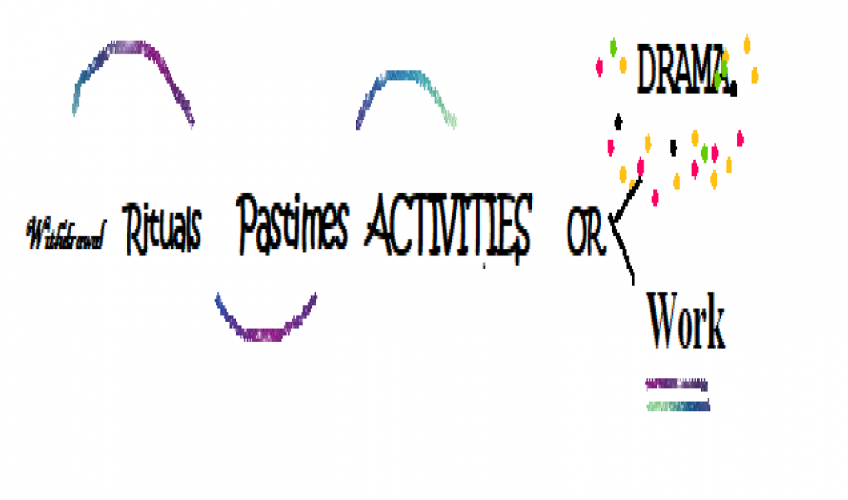Ria Varnom, experienced trainer, coach and friend of Waldrons sets out detailed guidance on understanding time structuring as an effective tool for remote team working.
More so now than ever, finding ways to help your colleagues and employees relate and respond to business needs, team working and getting to yes. Well here are some ideas about managing the challenges all teams face, firstly, bear in mind each person may be carrying additional personal and emotional burdens you may not be privy to just yet.
The pattern of our day, the energy and thinking space we previously contributed to the success of the business has changed, anxiety and distraction are our new travelling companions. You and your staff are possibly using new technology, or working with customers who are facing similar challenges and all of this takes its toll, we are all human with the frailties and strengths that entails.
For this post I have made my own interpretation of Eric Bernes ideas on how people can structure their time to the best intent, he called this 6 stage process; withdrawal, rituals, pastimes, activities, games and intimacy. In my work with organisations we often talk of best use of time and how much time is wasted on drama- or as Berne coined it in his international best selling book Games People Play and (btw, he didn’t mean the monopoly kind).
Time structured well
Generally speaking, we approach most days and processes in familiar ways that can be seen as stages.
Think of how you start your day, withdrawal is getting up, arriving at your place of work. Conversing with people, easing in or bouncing your way in – we all have our ways of moving from sleep to work. Mine includes coffee, shower and dressed before I am ready to get working and see people. What’s yours? Get up, commute, coffee, desk…on you are off!
The start and end of each day brings Withdrawal: team members need a little space to proceed from withdrawal of sleep or home surroundings. Ensure you book team meetings early in the morning and frequent initially, with an agenda for each briefing/meeting. Allow time for attendees to enter and settle briefly, to afford them time to settle into the meeting without being questioned or pushed into contributions immediately. Do not assume that introverts, the hiders and peekers just need longer, that is not the case, we will come onto them shortly.
Rituals – hold a round robin of ‘hello’s and how are you’s’, what has cheered you all up and anything generally non work like, that feels natural and timely before moving on to …
Pastimes: not knitting or playing bridge rather predictable routines that help you and your team establish “how we do things as a team during the virus”. It’s important to maintain usual team routines, encourage people to check in with each other, encourage having virtual coffee breaks together, a conversation whilst taking the dog for a walk. It might be a good idea to introduce a WhatsApp Group at this stage, to share updates, banter, daft videos all this builds team cohesion. It replaces the more physical gathering in the workplace kitchen area, across the office discussion and questions or pauses in office life to make a morning cuppa.
As a manager it’s vitally important to engage your direct reports in the usual social niceties in your group or one to one meetings, being approachable and inclusive builds camaraderie can replace feeling isolated or overwhelmed. Remember this has a valid purpose, you are helping foster good relations to build team cohesion that beds people in to a good frame of mind for work. This also helps introverts feel more comfortable, perhaps think of roles that involve them in the prep or running of meetings that will include them in a practical way.
Activities: this focuses the mind towards productivity These are the team chores – involving meeting participants in agreeing an agenda, sharing expected etiquette of home working, talking through fair time-slots for talking and discussing priorities, purpose of the meeting eg who will chair, take minutes, not over talk other people, call to action, reading meeting reports and briefing papers etc. You will be steadily bringing structure and focus to the team process.
These are predictable social norms, stages that most of us expect, but don’t talk about, but notice when a stage is overlooked. It’s like holding your hand out for a shake and the other party ignores it and starts telling you information before you’re ready for it to receive it because they need to get something off their chest or rushing to use the time efficiently.
It takes minutes, but yields buy in as you lead others to readiness for productivity. Example: When I first meet a new coaching client I may start with a handshake or hello, ask them about their Journey, offer a cuppa or water, tell them where the lavatory is located and if there will be a fire alarm test. Once settled with their pen and pad, papers tidied I then ask them if they are ready to get started. If we began work as they entered the room, they may feel rushed, think me rude and experience a sense of unnecessary urgency.
The next step can be either Working Well or Drama!, Depending on whether all have engaged in the stages genuinely, you will see smart working, responsive employees. Otherwise manipulations can occur because there are hidden agendas being played that leads to drama taking place – OR- the parties are ready to move into a productivity.
Working Well– Berne calls this stage intimacy, it’s the point where people work well together, can take feedback or respond genuinely to tough times. We are at our most productive, work together and value genuine contributions from others. We are more open to vulnerability, interested in achieving the team/business goal over personal agendas.
Withdrawal: after working – as a team or in isolation – we naturally withdraw back to post work life. At the present time however team working or manager- employee discussions can feel intangible because withdrawal punctuates the daily routine; attending to children, a needy pet, self isolating factors or even putting the washing out to catch the good weather. It may be tough if you are working with customer after customer without making progress. It can be desolating and can create a disconnect. Anxiety about falling behind, fantasies that peers are doing better, will I be furlowed…worse? And all this much more challenging for shy staff, struggling without face to face human contact.
Remember to speak to your individual team members regularly. You might be under pressure however you need to be able to Listen to them and really hear what they are saying. Recap what you hear as failing to may sadly lead to disengagement and impact on their work or their relationship with colleagues and possibly lead to drama in the team, which is painful for most of us and divisive in teams.
These stages followed well will serve you greatly, because you and your team will generally be ready to settle down to work. From this comes the connectivity we all hunger for in a healthy work environment. Even more so at times of stress and isolation. You will find good working together can lead to harmony, cohesion, increased productivity and reward. Celebrate your team’s successes, whether major to minor.
If these stages are ignored with remote workers you will find that drama and games are unconsciously played, to the detriment of all, particularly your customers and the bottom line.
Ria is experienced in delivering ‘people services and solutions ‘ in many business environments spanning her career. A proficient confidant to decision makes, or reviving the spirits of frazzled executives; Ria draws on her coaching talent to hone raw potential in people as they advance in the company. She excels in supporting HR to turn around poor performers and build buy-in,
Ria is adept at creating flourishing organisations through bespoke coaching, training resulting in successful long term development.
Contact. Ria@Peoplebizz.co.uk Tel: 07900 497381
There is no fee sharing or referral fee arrangement in place between Ria Varnom and Waldrons

